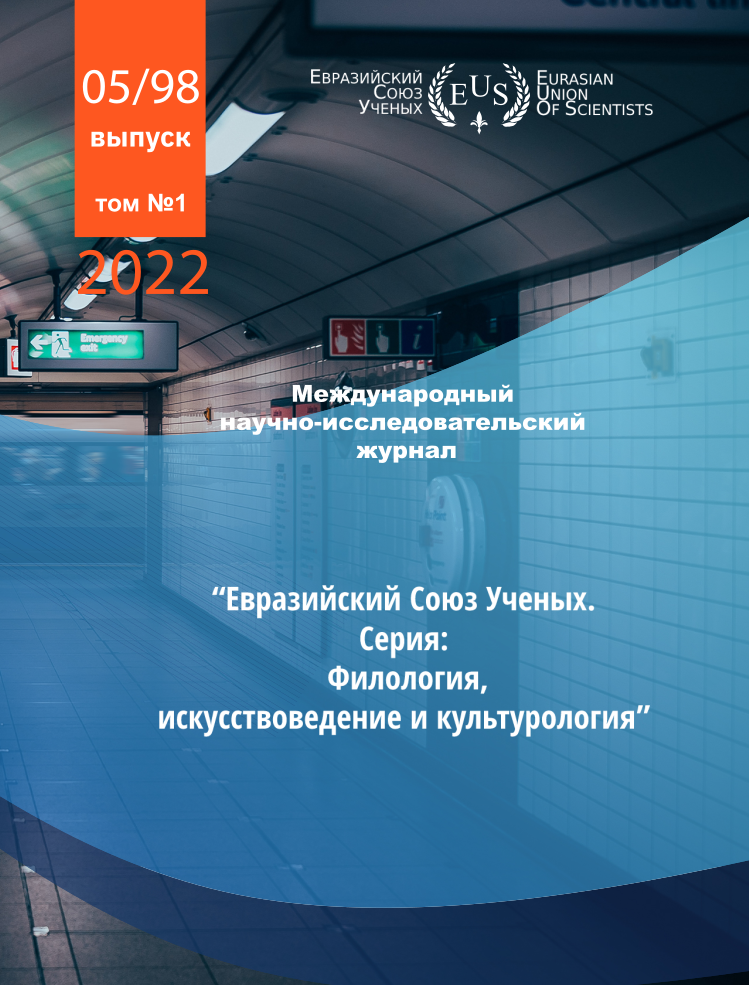THE INTERNET IS A WORLD THAT WAS NOT INVENTED BY US
Abstract
The present article analyzes the Internet world as an infrastructure that affects the minds of people of different
ages and their mentality. The positive and negative sides of the Western Internet space in the form of an "open
world" and an "open game" are investigated. The provisions of how people voluntarily enter the Internet world to
be free, independent and rich in it are reflected, but at the same time they become self-limited and unprotected,
lose their spiritual and material savings. One of the elements of the Internet space has been studied – bloggers,
who are tasked with attracting people to the "sparkling" and "scary" Internet world. In addition, a preliminary
forecast has been made of what awaits us in the new, emerging Russian open Internet world
References
2. «Fantasticheskie tvari». Gid po blogeram vseh vidov i mastej. [Jelektronnyj istochnik]. URL:https://special.klops.ru/fantastic (data obrashhenija: 02.09.2022).
3. Cifrovoj GULAG Fejsbuka. [Jelektronnyj istochnik]. URL:https://new.topru.org/cifrovoj-gulagfejsbuka/ (data obrashhenija: 02.09.2022).
4. Cifrovoj konclager'. [Jelektronnyj istochnik]. URL:https://wikireality.ru/wiki/Cifrovoj_konclage r' (data obrashhenija: 02.09.2022).
5. Cifrovoj GULAG Fejsbuka. [Jelektronnyj istochnik]. URL:https://new.topru.org/cifrovoj-gulagfejsbuka/ (data obrashhenija: 02.09.2022).
6. Razoblachenie obmana: chto skryvaetsja za krasivoj zhizn'ju «uspeshnyh» blogerov. [Jelektronnyj istochnik]. URL:https://www.vesti.ru/article/2653711 (data
obrashhenija: 02.09.2022).
7. Nacional'nyj issledovatel'skij universitet MJeI «Stat'i - Vse jelementy» (mpei.ru) [Jelektronnyj istochnik]. URL:https://mpei.ru/Life/psycholog/Lists/Psy/AllItem
s.aspx (data obrashhenija: 02.09.2022).
8. Rossijskij videohosting ochen' ne skoro smozhet zamenit' YouTube. [Jelektronnyj istochnik]. URL:https://www.dp.ru/a/2022/03/28/Glaza_bi_ne_smotreli (data obrashhenija: 02.09.2022).
CC BY-ND
A work licensed in this way allows the following:
1. The freedom to use and perform the work: The licensee must be allowed to make any use, private or public, of the work.
2. The freedom to study the work and apply the information: The licensee must be allowed to examine the work and to use the knowledge gained from the work in any way. The license may not, for example, restrict "reverse engineering."
2. The freedom to redistribute copies: Copies may be sold, swapped or given away for free, in the same form as the original.







